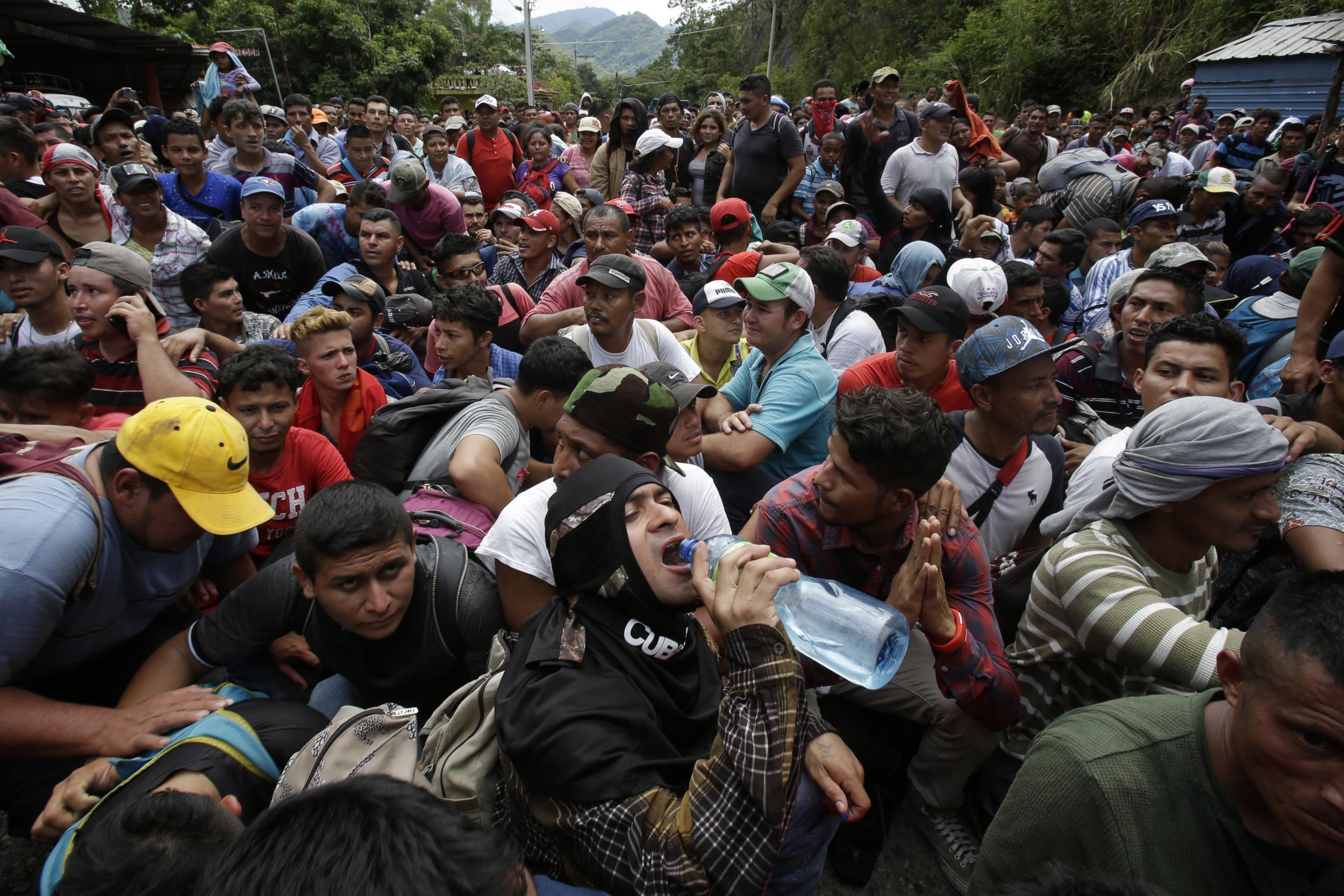Donald Trump threatens to cut off aid to Honduras as thousands of migrants make their way to US-Mexico border
The message has also been driven home by Vice President Mike Pence in a call with Honduran President Juan Orlando Hernandez

Your support helps us to tell the story
From reproductive rights to climate change to Big Tech, The Independent is on the ground when the story is developing. Whether it's investigating the financials of Elon Musk's pro-Trump PAC or producing our latest documentary, 'The A Word', which shines a light on the American women fighting for reproductive rights, we know how important it is to parse out the facts from the messaging.
At such a critical moment in US history, we need reporters on the ground. Your donation allows us to keep sending journalists to speak to both sides of the story.
The Independent is trusted by Americans across the entire political spectrum. And unlike many other quality news outlets, we choose not to lock Americans out of our reporting and analysis with paywalls. We believe quality journalism should be available to everyone, paid for by those who can afford it.
Your support makes all the difference.Donald Trump has threatened to stop aid to Honduras should a caravan of 3,000 refugees and migrants from the Central American country not be stopped from heading to the US.
Mr Trump tweeted the US informed Honduran President Juan Orlando Hernandez “that if the large Caravan of people heading to the US is not stopped and brought back to Honduras, no more money or aid will be given to Honduras, effective immediately!"
The message was driven home by Vice President Mike Pence in a later call with the Mr Hernandez.
The migrants crossed over the border into Guatemala, heading north, after a standoff with riot police and stern warnings from the US to not attempt illegal entry through Mexico.
It is unclear how Honduran authorities would be able to exercise control the group given that they have already left the country. However, the Honduran security ministry said on Tuesday that an organiser of a migrant caravan travelling north from Honduras - Bartolo Fuentes - was detained in Guatemala and will be deported back home in the coming hours.
“The problem is that he did not comply with Guatemalan immigration rules and will have to be returned to Honduras in the coming hours,” said ministry spokesman Jair Meza.
The group, which began with 1,300 people has been dubbed the "March of the Migrant”.
According to the US Agency for International Development (USAID) the US currently gives nearly $128m in aid across all federal agencies for counter-narcotics activities, military training, agricultural subsidies, and violence prevention.
Mexican officials also issued their own warning to the caravan, stating only those who met the country’s standards for refugee status would be allowed to enter at its southern border.
Katie Waldman, a spokesperson for the US Department of Homeland Security (DHS) said in a statement the US “will continue to have de-facto open borders that guarantee future 'caravans' and record numbers of family units entering the country illegally” unless Congress acts to reform immigration law.
She noted in the statement the caravan was "what we see day-in and day-out at the border as a result of well-advertised and well-known catch-and-release loopholes."
Ms Waldman is referring to a policy dating back to Barack Obama’s administration which involves capturing a migrant who crosses the border illegally, but releasing them to their community in the US as they await an immigration court hearing rather than detaining them.
A similar caravan of approximately 1,500 people had made its approach at the beginning of April 2018, just weeks before the Trump administration began its family separation policy and putting National Guard troops along the 2,000-mile US-Mexico border. The separation policy stemmed from a zero-tolerance approach to illegal immigration where all adults face prosecution, even if it means removing them from infants travelling with them.
Several members of that caravan entered the US to seek asylum after being threatened by gang violence in their home countries.
US Citizenship and Immigration Service rules state asylum seekers have up to one year to "demonstrate [they] have suffered persecution or fear that they will suffer persecution due to" five factors: race, religion, nationality, membership in a particular social group, or political opinion.
The Trump administration is carrying on to build a large border wall, the funding for which is still up for debate in Congress.
Join our commenting forum
Join thought-provoking conversations, follow other Independent readers and see their replies
Comments